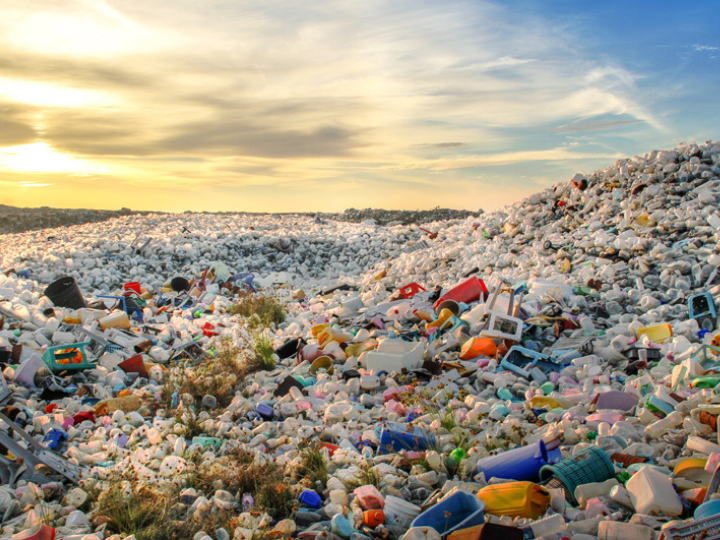by Kira Taylor
Thirty-one lawmakers in the European Parliament have signed a manifesto calling for the end of plastic waste exports outside Europe and the facilitation of intra-EU shipment procedures to promote a genuine circular economy within the EU.
The manifesto, launched on 14 April by environmental campaign group Zero Waste Europe, calls for the revision of the EU’s waste shipment regulation to address the environmental impact of exported plastic waste and promote prevention and recycling within European borders instead.
International trade in waste increased four times between 1992 and 2016, according to the European Commission. By that time, the EU exported around 40 million tonnes of waste, around 20% of the global share.
“Some plastics are intrinsically toxic, while others have toxic additives that can leach into the environment, including during recycling operations,” the manifesto says, adding that the substances can impact the health of local communities in developing countries, which are at the receiving end of the EU’s waste trade.
The way forward, according to Zero Waste Europe, is to “ban all plastic waste exports outside the European Union” and fully implement the 1992 Basel Convention, which was designed to prevent transfer of hazardous waste from developed to less developed countries.
To complement this, the manifesto urges putting in place “upstream circular measures on prevention, reduction, reuse and recycling” in order to embed the EU’s plastic waste trade in “a true circular economy aiming to prevent plastic waste in the first place”.
EU waste shipment rules will be up for a review this year, as part of a broader package of energy and climate laws to be tabled in June under the European Green Deal.
The European Commission, which is currently drafting the new proposal, said the revision will further restrict waste exports and make it easier to re-use and recycle within the EU.
The current regulation “does not effectively support the transition to a circular economy,” according to the Commission’s initial impact assessment, published last year. This is because of “inconsistent implementation” by EU member states, which “do not facilitate the transboundary movements of waste for recycling within the EU, notably delaying shipments,” it said.
Emmanuel Katrakis, secretary-general of the European Recycling Industries’ Confederation (EuRIC), says getting the legislation to work is instrumental to the recycling industry. Waste needs to be seen as a resource, and not as something that needs to be disposed of, he said.
For him, an improved tracking system for waste shipments must be put in place at EU level, in order to reduce the risk of illegal shipments.
Pierre Condamine from Zero Waste Europe, agrees. “There is mismanagement of waste within the EU. There should be an improved tracking and monitoring system for shipments,” he said.
However, simplifying administrative procedures for trade should not come at an environmental cost, Condamine warned. “If we can have a functional recycling market within the EU, that’s obviously something that we would push for, but we don’t think it should be done at the expense of sufficient controls and safeguards to ensure that clean waste, sorted waste is shipped.”
Banning exports outside the EU also decreases the environmental and health risks associated with waste shipment.
Exports are done “often without sufficient control” of how waste will be managed in destination countries, the Commission says. “This can harm the environment and public health in destination countries,” especially in developing countries, which often don’t have the resources to take preventive measures.
“There are a lot of issues and negative impacts on those communities in those countries. It’s environmental because there is illegal dumping and burning of waste, but it’s also social because there are communities impacted by this,” said Condamine.
Still, NGOs are concerned that the ban would only cover non-OECD countries, with Condamine insisting on procedures to ensure that approved destination countries maintain minimum safety standards for waste handling.
However, simply banning the export of waste is not the whole solution. In January 2021, a ban on came into force at EU level prohibiting the shipment of unsorted plastic waste to foreign countries.
But while recyclers said this would create opportunities and boost recycling, environmental groups said the EU did not yet have incentives in place to invest in new recycling facilities. The risk, they warned, is that plastic will end up in incineration, causing air pollution and fueling global warming.
Simplify waste shipments
According to the industry, the upcoming revision of EU waste shipment rules also needs to simplify recycling in Europe, and speed up administrative processes.
“If you ask any recycler in Europe what they expect from the revision of the waste shipment regulation, they will tell you, make things simpler,” said Katrakis.
Simplifying requires more harmonisation across member states as well as digitalisation of the current paper-based procedures that can lead to 1,000-page files and up to a year for shipments to get clearance, he added.
The Commission has listened to the advice, saying options under consideration “may include digital approaches to information exchange” as well as “provisions to further harmonise” administrative procedures.
The industry is also calling for simpler procedures to move waste between EU countries, adding that free trade of commodity-grade secondary raw materials is essential to the competitiveness of the recycling industry.
“Only 12% of raw materials used by Europe’s industry come from recycling. Until we have mature circular value chains in Europe, which substitute virgin materials as main feedstock with recycled ones, we obviously need to have access to international markets,” Katrakis said.
*first published in: www.euractiv.com




 By: N. Peter Kramer
By: N. Peter Kramer
